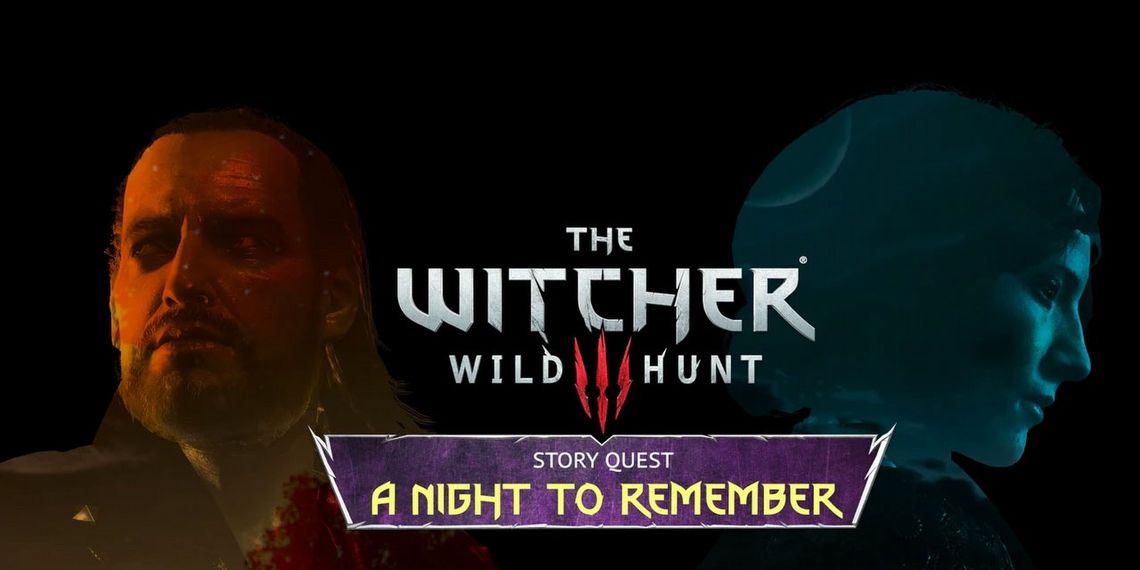The Witcher 3 Mod With AI Reading Dialogues Worries Actors
A Night to Remember, a mod for The Witcher 3, and an article published in Input Mag caused quite a stir about the use of AI to create audio dialogue. Many actors are concerned about these technologies.

- A Night to Remember, a mod for The Witcher 3 used AI to fake in-game character voices;
- Actors are afraid that such solutions will significantly harm their profession;
- Most of them agree that nothing can be done about it.
A Night to Remember project was released in April. It's a rare modification for The Witcher 3: Wild Hunt that adds an extensive new single player adventure. The project features high quality of execution, which includes numerous new voiced dialogue lines. However, the way in which they were created caused some controversy. The creator of the mod, nikich340, used the AI algorithms of CyberVoice, which, after analyzing the original recordings from the base game, were able to effectively fake the voices of professional actors known from Wild Hunt.
The app's capabilities are impressive. It's not easy to tell in the mod which of Geralt's lines were recorded by actor Doug Cockle, and which were recorded by CyberVoice's synthesizer. It's not hard to understand why such technology causes controversy. Jay Britton, the actor whose voice could be heard in such productions as Frostpunk, Divinity: Original Sin II or Elite: Dangerous, spoke negatively about it. He stated that using such speech synthesizers is a bad idea because limiting human participation can deprive games of their soul. This comment was first published in April and didn't cause much of a stir, but it must have resurfaced recently, as the actor complained on Twitter today that his opinion has angered a lot of gamers.
The topic has now returned mainly thanks toan article published by Input Mag. The editors got comments from actors and people from the industry. Most of them are full of concerns and doubts. They do not concern only the aforementioned mod, but such technology in general. A few months ago it was loud about Obsidian, after the company used software from Sonatic, which generate voices with the help of AI, in The Outer Worlds.
Natalie Winter, whose voice we could hear in, among others. Assassin's Creed: Valhalla fears that soon this type of technology will reach such an advanced level that actors will have much less opportunity to work. The article on Input Mag also raises another concern - AI can be used to produce offensive content, that the artists themselves would never say.
The editors also asked SAG-AFTRA, the actors' union, for a comment. Its representative stated that the law does not allow the use of artists' voices without their consent. Even if someone has recorded some lines for a game, the development studio cannot then arbitrarily use those recordings to generate new dialogue.
However, the article also raises the issue of potential benefits. Such technologies open up additional income opportunities for actors, who could merely license their voices instead of recording each sentence themselves. In the case of the mod, the author was able to create copies of Geralt's voice simply because it was an amateur, non-commercial project. The president of Mind Simulation Lab, the company responsible for CyberVoice, assured that in the case of commercial productions, AI creates voices only of those actors who have previously agreed to do so and have received appropriate remuneration.
Thomas Mitchells, who is currently working on audio lines in Baldur's Gate 3, is a realist. He says that while companies like Mind Simulation Lab and Sonatic offer actors a certain level of protection, ordinary users will soon be able to create similar solutions themselves at home with free software and there's no stopping it.
Mitchells understands why such technologies can be very attractive to small developers in particular. However, he stresses that nothing can replace real actors. Their lines sound more natural, and the experience of each of them is invaluable. He recalled a famous anecdote from the production of the Lord of the Rings movies, when Christopher Lee, playing Saruman, corrected the director and explained to him exactly how a man who is stabbed in the back really sounds. Lee knew this sound from his own experience, because he was a commando during World War II.
The aforementioned Natalie Winter, on the other hand, emphasizes the large role that breathing plays in voice acting, something that AI systems are unable to mimic for now. Despite these arguments, everyone seems convinced that these technologies will change the industry and there's no stopping their widespread use by developers.
- Secrets of The Witcher 3. Modders revealed many details about unknown version of bestselling RPG
- Dark quest from The Witcher 3 was testing ground for The Witcher 4 devs. Developing it, they focused on capturing universe's atmosphere
- Pawel Sasko revealed that „the hardest quest he have ever designed and implemented” is in The Witcher 3
